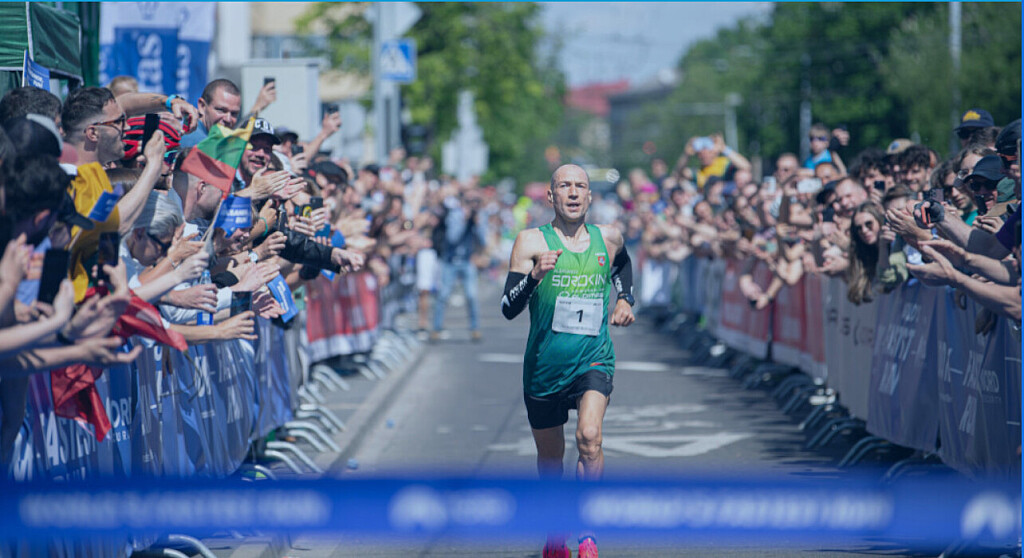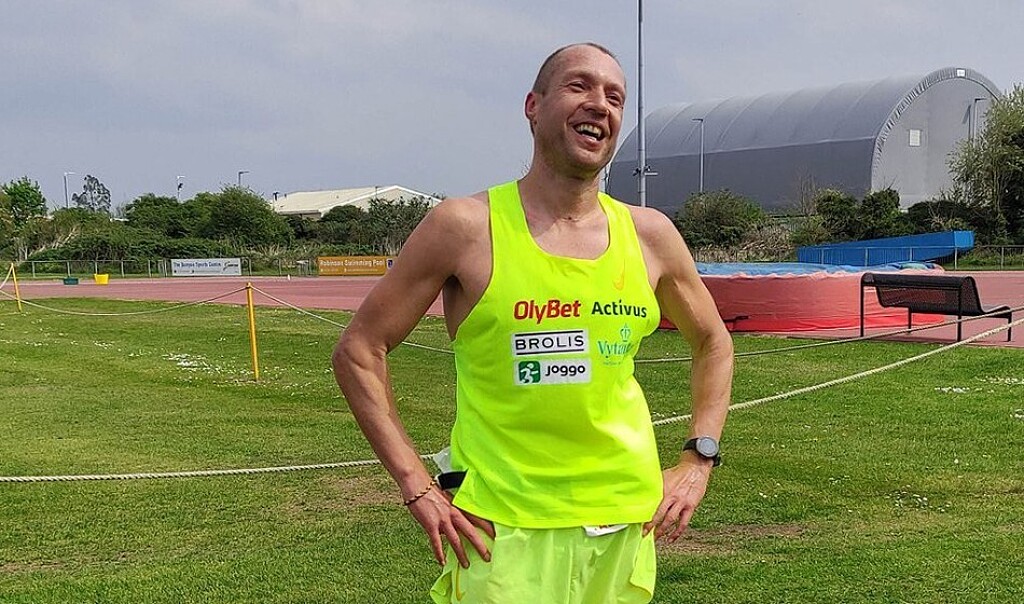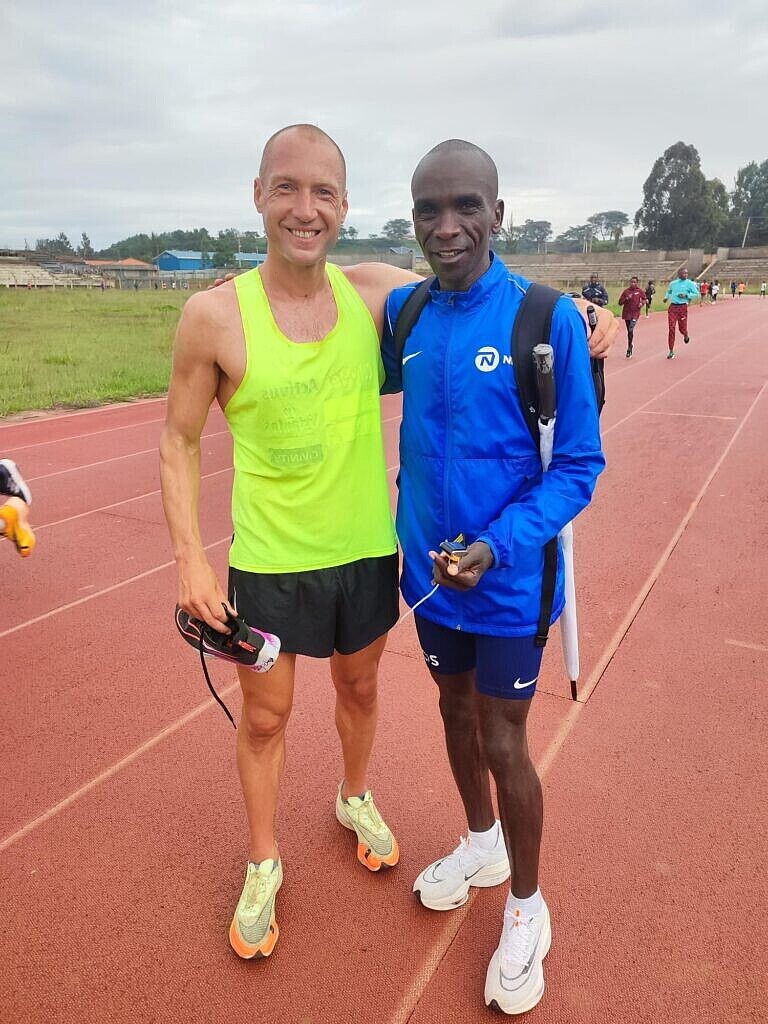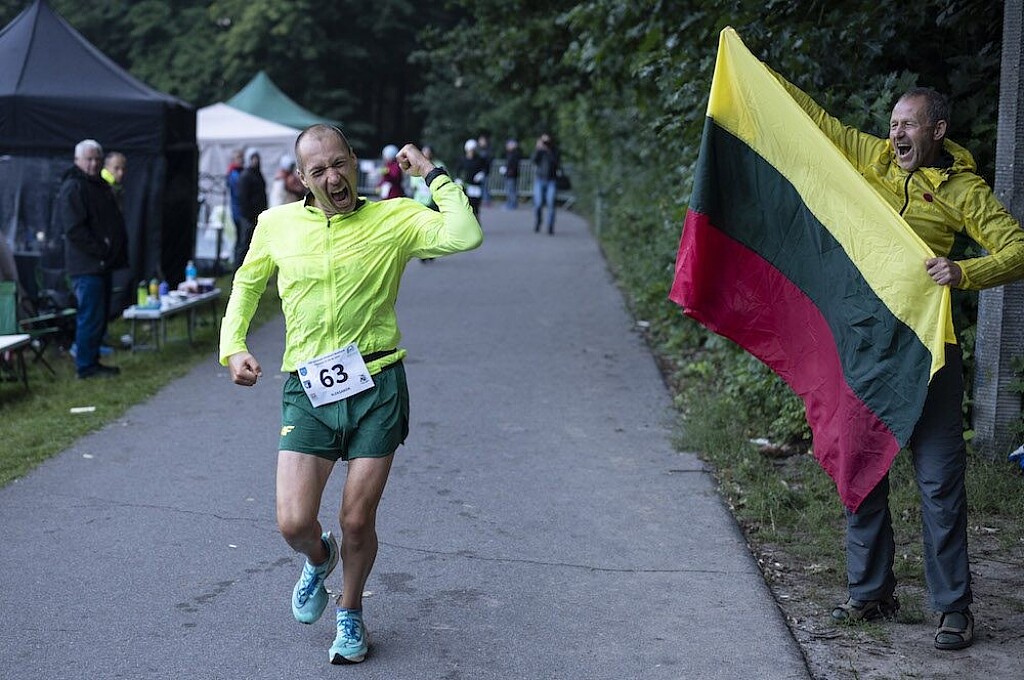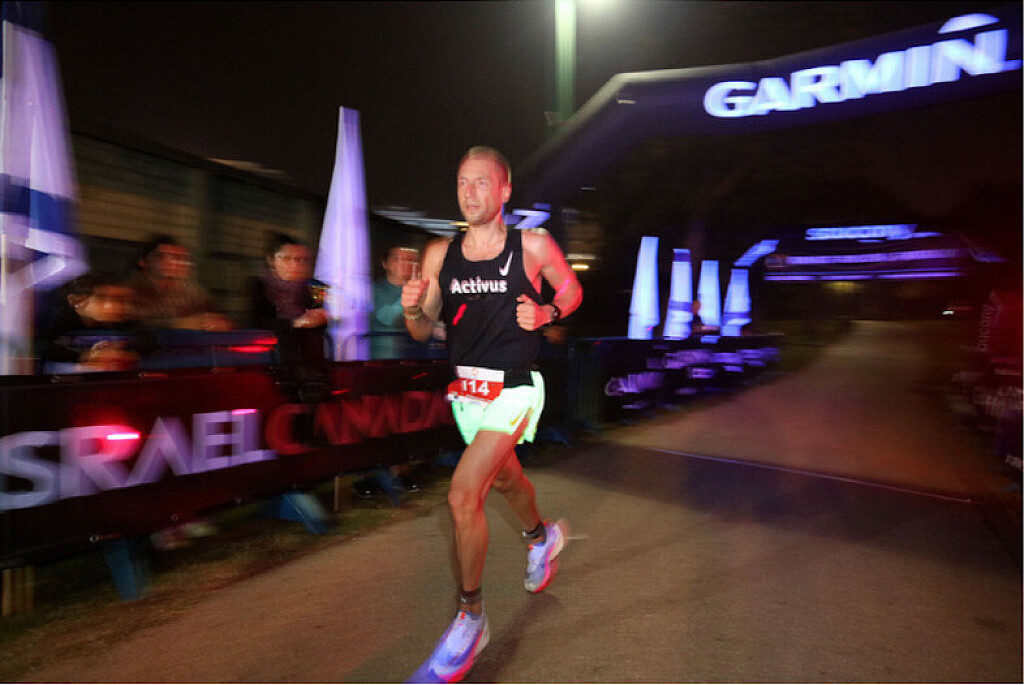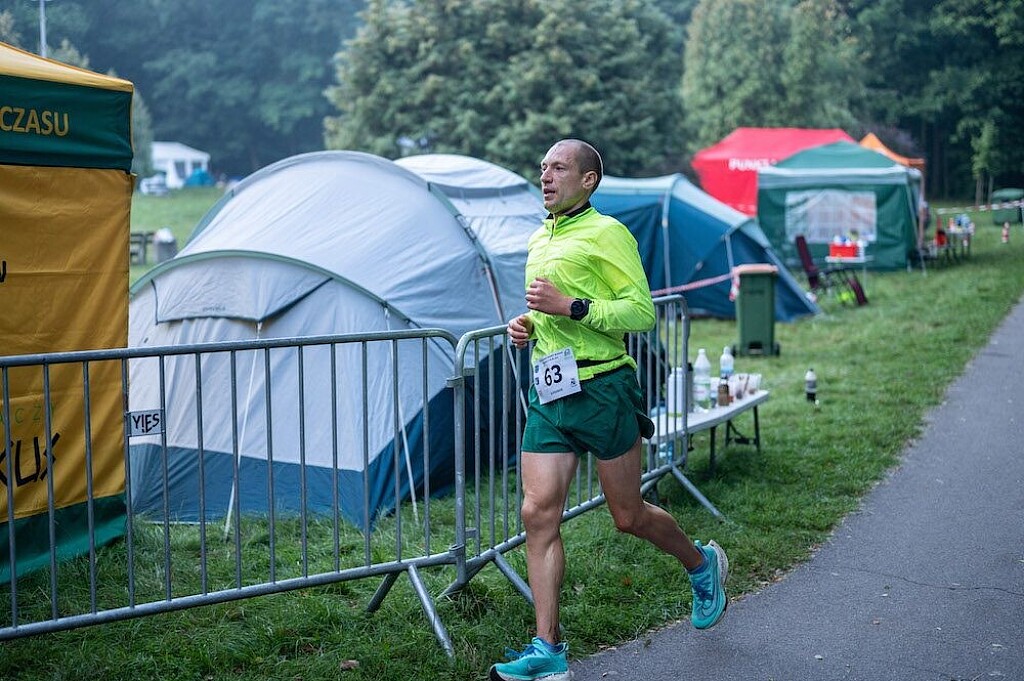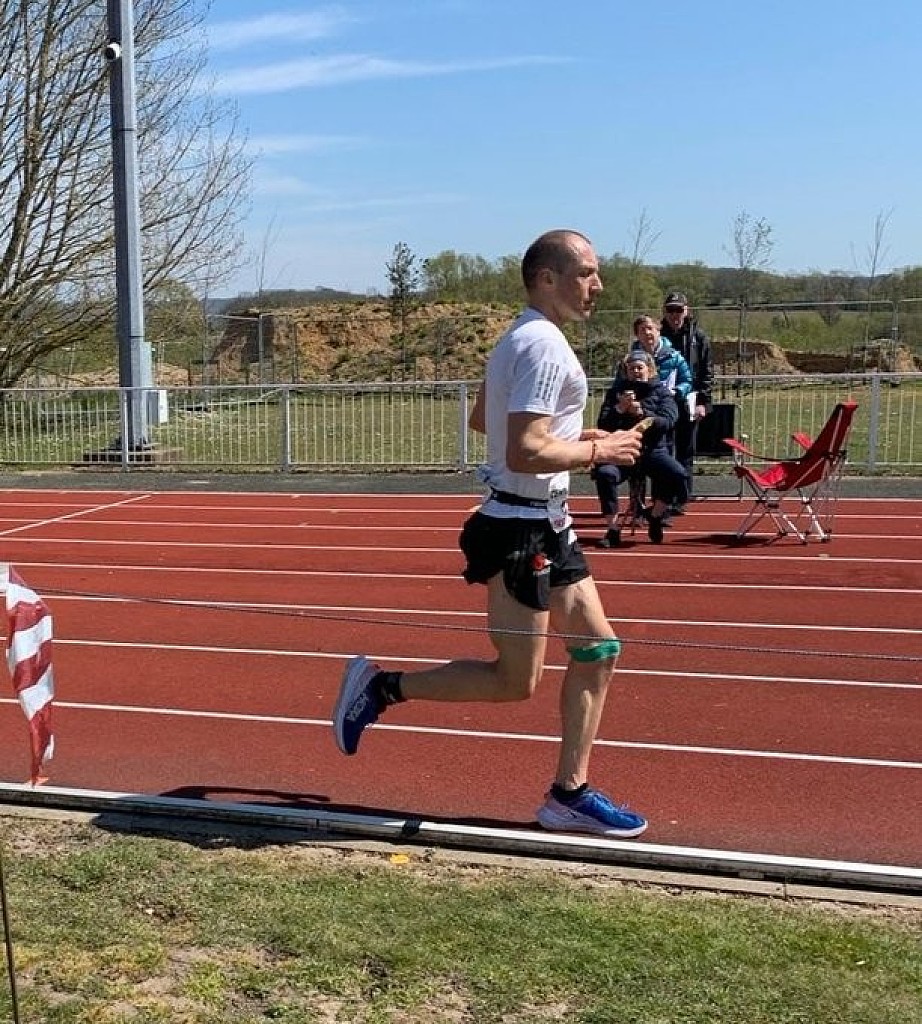Running News Daily
Running News Daily is edited by Bob Anderson. Send your news items to bob@mybestruns.com Advertising opportunities available. Train the Kenyan Way at KATA Kenya and Portugal owned and operated by Bob Anderson. Be sure to catch our movie A Long Run the movie KATA Running Camps and KATA Potato Farms - 31 now open in Kenya! https://kata.ke/
Index to Daily Posts · Sign Up For Updates · Run The World Feed
Articles tagged #Aleksandr Sorokin
Today's Running News
Did You Know? No One Has Come Close to Sorokin’s 24-Hour Record Since 2022
Did you know that Aleksandr Sorokin’s legendary 24-hour world record—set in 2022—is still untouched, and no one has even come particularly close?
At the 2022 IAU 24-Hour European Championships in Verona, Italy, Lithuanian ultrarunner Aleksandr Sorokin ran a staggering 198.598 miles (319.614 kilometers) in a single day. That’s the equivalent of running from New York City to Washington, D.C.—and then some—all in just 24 hours.

Even more impressive: Sorokin averaged a 7:15-per-mile (4:30/km) pace the entire time. That’s a tempo most runners struggle to hold for a 10K—let alone for nearly 200 miles.
What’s Happened Since?

At the 2023 IAU 24-Hour World Championships, Sorokin competed again and covered 301.790 kilometers—an outstanding performance, but still nearly 18 kilometers short of his own world record.
No other male athlete has even broken the 300 km barrier since.
Meanwhile, on the women’s side, Japan’s Miho Nakata set a new world record in 2023, covering 270.363 km, which is phenomenal—but still nearly 50 km less than Sorokin’s historic run.
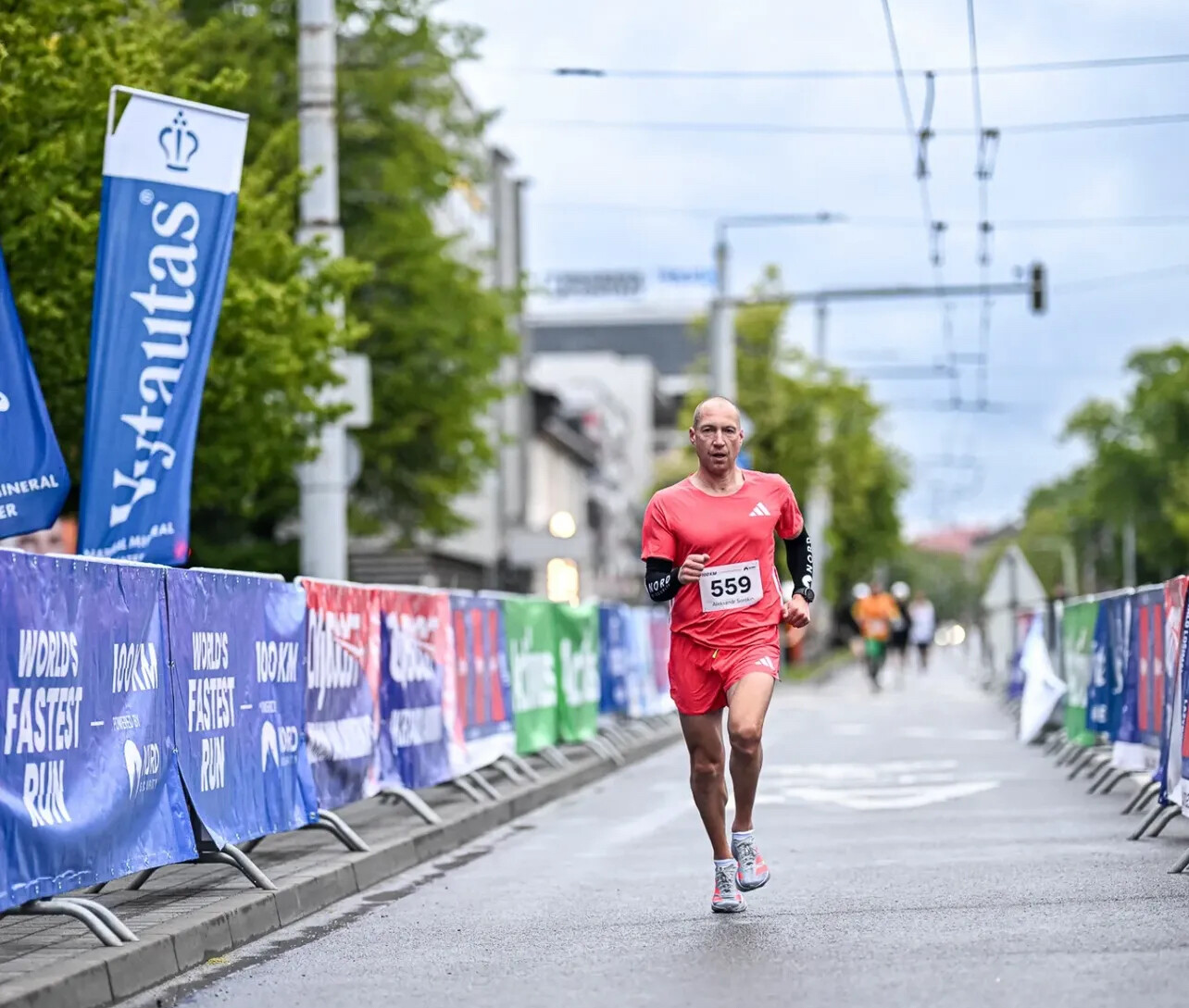
Top 24-Hour Running Performances (All-Time)
|
Runner |
Gender |
Year |
Distance (km) |
Gap to Sorokin (km) |
|
Aleksandr Sorokin |
Male |
2022 |
319.614 |
0.00 |
|
Yiannis Kouros |
Male |
1997 |
303.506 |
16.11 |
|
Aleksandr Sorokin |
Male |
2023 |
301.790 |
17.82 |
|
Tamas Bodis |
Male |
2023 |
295.290 |
24.32 |
|
Haruki Okayama |
Male |
2023 |
289.420 |
30.19 |
|
John Stocker |
Male |
2021 |
285.300 |
34.31 |
|
Miho Nakata |
Female |
2023 |
270.363 |
49.25 |
|
Camille Herron |
Female |
2019 |
270.116 |
49.50 |
|
Patrycja Bereznowska |
Female |
2022 |
263.660 |
55.95 |
The Legacy
More than two years later, Sorokin’s record remains the gold standard in ultrarunning. His 2022 performance wasn’t just a world record—it redefined what humans can do in a single day.
Whether you’re a weekend warrior or an elite endurance athlete, one thing is clear: nobody’s chasing Sorokin. He’s still out in front—by miles.
by Boris Baron
Login to leave a comment
World 24-hour record for Miho Nakata
Japanese ultra-runner sets women’s all-time best by slim margin as Aleksandr Sorokin takes men’s title at the IAU World 24-hour Championships in Taipei
Japan’s Miho Nakata set a women’s world record when winning the IAU World 24-hour Championships in Taipei on Saturday (Dec 2) while Lithuania’s Aleksandr Sorokin retained his world crown and the British team won bronze in the men’s race, Adrian Stott reports.

With final results still to be confirmed, organisers are reporting a distance of 270.363km (167.995 miles) which, if confirmed, will surpass the distance set by Camille Heron of 270.116km (167.842 miles) at the last edition of the championship in 2019 by a mere 246 metres.
Nakata had been the early leader and at six hours had reached 78km, with Finland’s Noora Honkala and Herron in second and third. She reached 100km in around 7hr 50min, a total of 10 minutes up on Herron’s split from her world record run in 2019.
At halfway, Nakata had accumulated 146km, on par with Herron’s record split at the 2019 event in Albi. Herron was lying second with 142km, Norway’s Line Caliskaner was on 140km with Spain’s Carmen Maria Perez and Honkala also on 140km.
Herron seemed to encounter difficulties and retired at this point, leaving Nakata to power on and reach 100 miles in approximately 13hr 25min with Spain’s Perez at about 13:45 and Honkala at 14.00.
By 20 hours, Nakata had reached 228.00km. Although still moving well it looked like she was falling slightly behind record schedule despite being 12km ahead of Perez, as Ukraine’s Olena Shevchenko moved up to third.
A strong final three hours by Nakata took her past Herron’s mark, seemingly in the final minutes of the race. Shevchenko took the silver, while previous champion and world record holder Patrycja Bereznowska of Poland took bronze.
Putting Nakata’s run in perspective, her distance was only beaten by four of the men in the championship and increased her 24-hour PB by 14km from 256.024km. She also has a 100km best of 7:19:12 when finishing at the 2023 World 100km Championships in Berlin.
Positions changed a lot in the last couple of hours, with the likelihood of several national records yet to be confirmed in both the women’s and men’s races.
In the team competition, the experienced Polish team paced well to take the gold medals. Japan claimed silver and Czech Republic the bronze.
Sorokin retains global title
Aleksandr Sorokin had a similarly emphatic victory in the men’s race, although falling short of his current world record.
At six hours he led Brazil’s Denison Da Silva by 2km, with Greece’s Fotios Zisimopoulos in third. Reaching the first landmark of 100k in just over seven hours, he was slowly stretching his lead out.
Sorokin hit 100 miles in approximately 11hr 35min and totalled 166km at halfway. This compared with a 170.9km split when he set his exceptional world record of 319.614km in Verona last year. Zisimopoulos reached halfway in 158km, with Ukrainian Andrii Tkachuk now third.
Sorokin maintained a strong pace in the second half of the race to take the victory, surpassing 300km for the third time in his career to retain his title. Zisimopoulos, who had broken the record in the 245km Spartathlon race in September, cemented his place in the world ultra standings, taking second place with over 290km to gain his first ultra championship medal. Tkachuk took the bronze.
Lithuania took the gold medals in the team competition, with Poland taking silver.
Superb pacing from the Great Britain and Northern Ireland men’s team saw them earn well-deserved bronze medals.
Daniel Hawkins led the British men home in 10th, Former European 24-hour champions Dan Lawson was 17th and British record-holder Robbie Britton was the third counter in 22nd place.
by Jason Henderson (Athletics Weekly)
Login to leave a comment
How to safely increase your training volume
Lithuanian ultrarunner Aleksandr Sorokin recently shared his August Strava data on social media, and for most runners, it reads like a what-not-to-do training plan. The ultrarunner, who holds seven world records on the track and road including the 100K (road), 100 miles (both road and track), and 24-hour run (road) is known for his huge regular mileage and hammering out two 40K runs in a single day.
“31 marathons distance completed in August, Sorokin shared on Instagram. “It was a tough month with great work for some good results for the future.” While Sorokin’s monthly mileage is mind-blowing, for the rest of us, increasing training volume should be done slowly and carefully. Here’s how.
Make sure to build a strong base
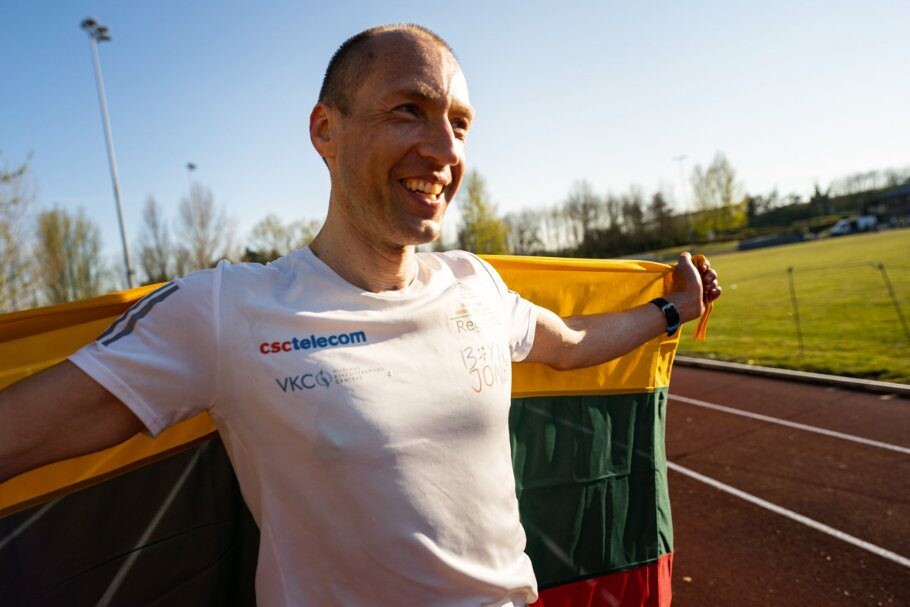
Before you start to really add mileage, make sure you have been running consistently for at least six months and have a solid foundation. These runs can (and should) be mostly done at a very easy pace–this will build your aerobic fitness and endurance.
Ignore the 10 per cent rule

The 10 per cent rule is commonly recommended for increasing training volume–and it may not be the best way to add mileage (mileage increases of not more than 10 per cent per week). There is no hard and fast rule that works for everyone, and you should maintain flexibility in your weekly volume to adjust depending on how you feel.
Volume should be added very gradually, allowing your body to adapt to the increased stress and reducing the risk of overuse injuries. For many runners, three or four per cent might be a better guideline, while others might be able to add 10 per cent or more without getting into trouble. Pay attention to how your body is responding.
Consider alternating hard and easy weeks
Periodized training is a popular method of training in phases or building blocks that usually include recovery weeks. While athletes often have three weeks that include some challenging workouts and one week of easier training to recover, alternating hard and easy weeks is a great option when adding mileage.
If you’re feeling extra tired or sluggish, take an extra rest day (or three). Paying attention to the messages your body is sending you is key to preventing injuries and building strength.
Focus on recovery
Whenever you’re adding volume or intensity to your running plan, recovery is the golden ticket to staying healthy. Prioritize rest and easy days. Make sure you are taking in sufficient calories and nutrients–this means on days when you aren’t running, as well. Recovery weeks or days are when the magic happens: your body works to repair microscopic tears in tissue and builds strength.
Increased mileage or focus on a big goal can also be challenging mentally. Make sure you are spending time on hobbies and interests outside of running and practising healthy self-care.
by Keeley Milne
Login to leave a comment
Five ridiculous workouts from ultrarunner Aleksandr Sorokin
Lithuania’s Aleksandr Sorokin has five ultrarunning world records to his name, and it is his grueling training sessions and mileage that set him apart from other endurance athletes. Leading up to his recent 100km world record in Vilnius, Lithuania, the 41-year-old averaged 300 kilometers per week, with some ridiculous training sessions. Here’s a glance at a few of them.
1.- 40 reps of 1,000m with 1-2 minutes’ rest
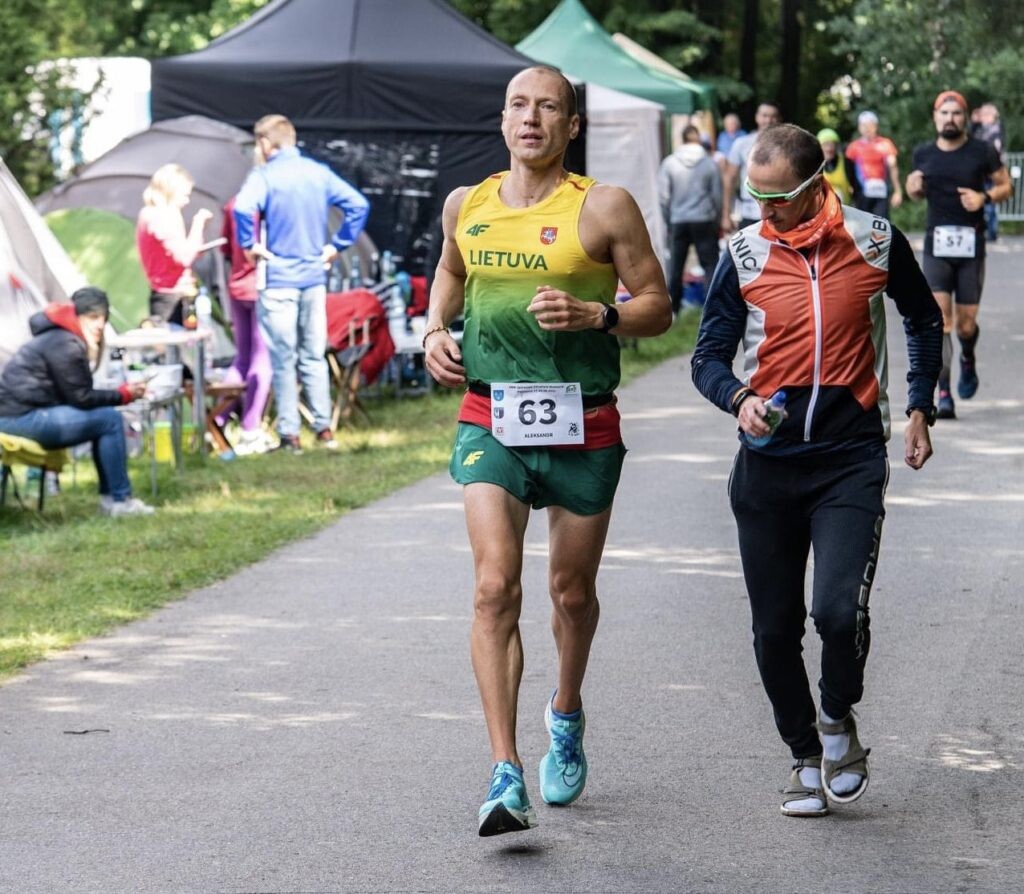
Kilometer repeats can feel long for most runners; now imagine doing 40 of them. This workout from Sorokin is mind-boggling. He averaged three minutes and 28 seconds per kilometer over the 40 reps. According to his Instagram post about the workout, he told his long-time coach Sebastian Białobrzeski that he wanted to cry after finishing rep #20. (Sania, we don’t blame you.)
2.- Three reps of 10K progressions off 1K
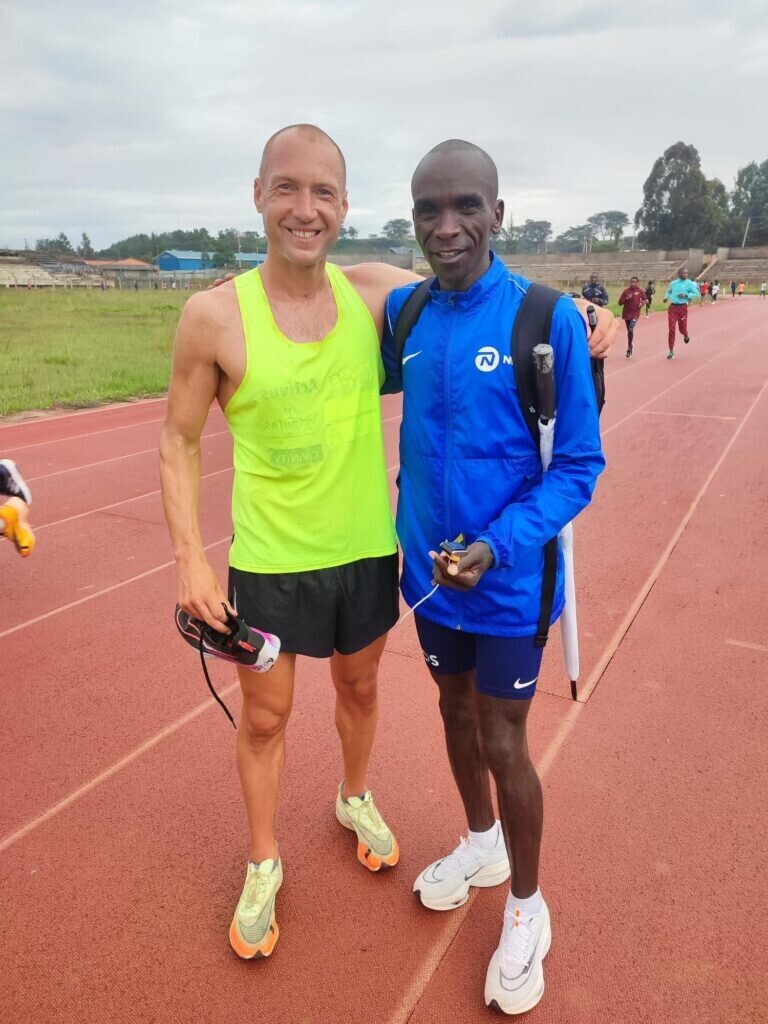
Adding progression runs to your training is a great way to improve your endurance and help your body adapt to running longer distances and sustaining higher intensities. It also plays a role in building mental stamina. In Sorokin’s case, this 30K progression workout is to help him get familiar with world record paces when fatigued. This can be a good session for someone training for a marathon, but the workout would be way too much mileage for any distance under 30K.
3.- Five reps of 5K with three minutes’ rest
In the lead-up to the 2023 Seville Marathon in Spain, Sorokin threw down this wild 5K session, averaging 3:15-3:20 per kilometer off three minutes’ rest between reps. The 41-year-old ended up placing 118th overall in a time of 2:25:33.
If you switch the workout to three or four reps with the same amount of rest, it can be a good workout for those training for a half-marathon or marathon, as it simulates your race effort.
4.- 10 reps of 2K, off 1K float
This might be the least ridiculous Sorkoin workout of the five, but it’s still 30 kilometers of volume and done at a fast pace. Similar to the 5K workout above, this can be done at your goal half or marathon pace. The thing about float rest is, you have the ability to mark the workout as hard as you want. The faster you float (faster than a jog), the harder the workout will be, and vice-versa.
5.- 42-kilometer steady run
A week after breaking his 100K record by six seconds in 6:05:35, the Lithuanian star celebrated his achievement on his Strava in typical ultrarunning fashion, heading out for a casual 42.2-kilometer steady run in two hours and 50 minutes.
Sorokin hasn’t always been a runner; he did not start until 2013, at 32. In a 2021 interview with Canadian Running, Sorokin told us that he began running to get in shape, when he weighed 100 kg (220 lb.). “At the time I wasn’t playing any sports, just drinking and smoking a lot,” he said. After a few months of training, he entered a half-marathon, and a few weeks after that, he saw an advertisement for a 100 km race in Lithuania and began his ultrarunning career. (And the rest is history.)
by Marley Dickinson
Login to leave a comment
Lithuania's Aleksandr Sorokin Improves His Own 100km World Record
Aleksandr Sorokin broke the world 100km record at the Nord Security World’s Fastest Run in Vilnius on Sunday (14).
His winning time of 6:05:35, pending ratification, is an improvement of three minutes and 39 seconds on the previous official world record of 6:09:14, set by Japan’s Nao Kazami in 2018. Sorokin had clocked 6:05:41 in a 100,000m race on the track last year but it was not ratified as a world 100km record.

Competing in a field of 30 international ultra-runners on a 1.644km circuit in the Lithuanian capital, Sorokin ran his own race in a bid to break the record. He covered the marathon distance in about 2:32:30, just seven minutes shy of the PB he set for that discipline in Seville earlier this year.
He maintained that rhythm as he reached half way in just under 3:02, putting him well on course to break Kazami’s record. With temperatures now at 19C – the race having started at 6am local time – Sorokin’s pace barely dropped in the second half as he crossed the finish line in 6:05:35.
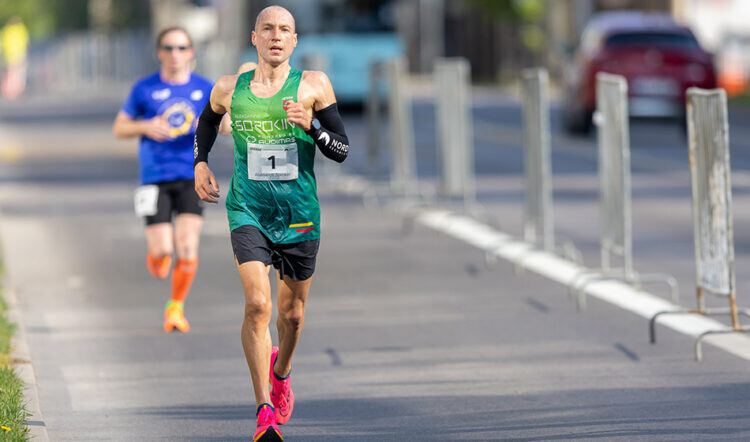
“I am extremely happy that I managed to break a world record and that I did so in my native city,” said the 41-year-old. “Vilnius is the city where I started running and it’s my great pleasure to thank it by making history right here.”
by World Athletics
Login to leave a comment
Aleksandr Sorokin wants to become the first man to run 200 miles in 24 hours
On Sept. 17, the world’s fastest ultrarunner, Aleksandr Sorokin of Lithuania, demolished his previous 24-hour world record from a year ago, running 319.61 kilometers at the IAU 24-hour European Championships in Verona, Italy. There is no doubt that Sorokin’s record will stand the test of time, but the 40-year-old ultrarunner says he’s not done yet with the 24-hour distance.
After breaking Yiannis Kouros’s long-standing 24-hr record of 303.506 km a year ago, with 309 km, Sorokin has once again redefined human performance, beating his old mark by more than 10 kilometers.

No runner has ever covered 200 miles (321.86 km) in 24 hours, but Sorokin has come the closest, with his most recent record of 319.61 km. “I have unfinished business with the 24-hour distance,” he says. “There’s much more to come.”
Ten kilometers is a significant improvement for Sorokin in a year, but he says he hasn’t changed much in his training. “Nothing has changed, but little by little, my body has become faster,” he says. “We’ve added a little more mileage this time around, too.”
Three to four weeks out from the European championships, Sorokin’s peak training weeks were between 360 and 380 kilometers (an average of 50-plus kilometers per day).
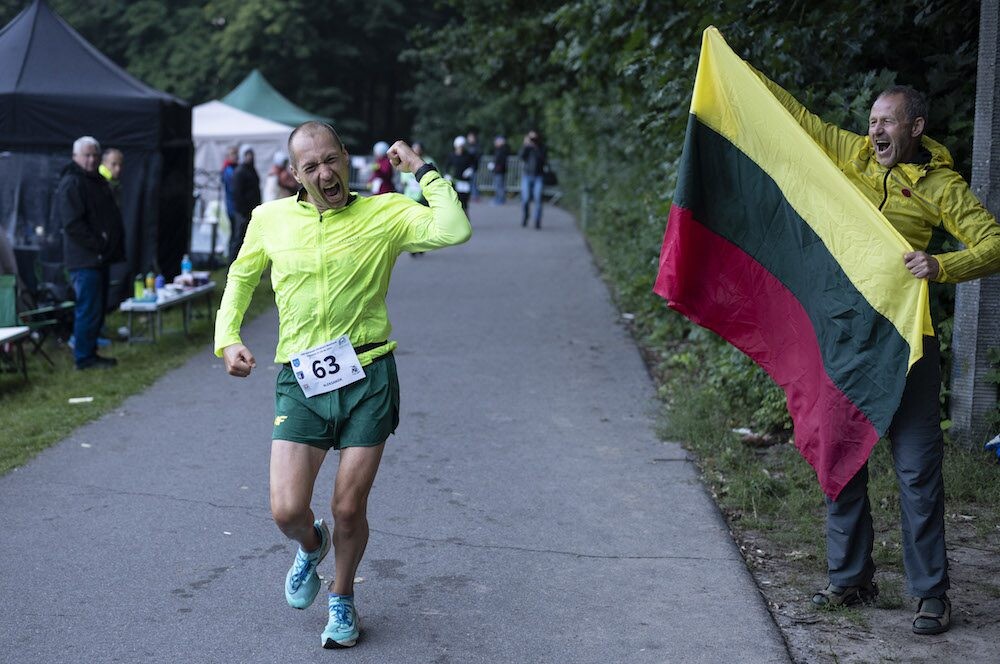
“My training for these ultra races is no secret,” Sorokin says. “My coach and supporters motivate me to achieve my goals and work hard.” Sorokin has a public Strava profile where he uploads all his training in the lead-up to each race.
In a 2021 interview with Sorokin, he spoke about how winning European championship gold for Lithuania was his ultimate goal when he began running in 2013. Sorokin holds seven world records on the track and road: 100,000m (track), 100 miles (road), 100 miles (track), six-hour run, 12-hour run (track), 12-hour run (road), 24-hour run (road).
The Lithuanian distance runner has no races planned for the immediate future but he is excited for what is yet to come. “I think running 200 miles in 24 hours is possible,” says Sorokin. “There are many factors that need to go your way—like good weather and a fast course.”
In January, Sorokin became the first runner to break the 11-hour barrier for 100 miles in 10 hours, 51 minutes and 39 seconds at the Spartanion Race race in Tel Aviv, Israel.
by Running Magazine
Login to leave a comment
Aleksandr Sorokin breaks 100K world record, Sorokin ran 6:05:41, averaging an insane pace of 3:39 per kilometer
The 100-mile and 24-hour world record holder, Aleksandr Sorokin of Lithuania, has added another world record to his resume by running 6:05:41 over 100K at the Centurion Running Track 100 in Bedford, U.K. on Saturday. Sorokin broke Japan’s Nao Kazami’s previous 100k world record of 6:09:14 from 2018 by almost five minutes.
The pace of Sorokin’s new 100K world record is three minutes and 39 seconds per kilometer, which is equivalent to running back-to-back marathons in 2:32:33. According to his Strava activity, his goal was to go out at 3:40/km pace, but he found that he felt good 70 kilometers in, picking up the pace to 3:30/km.

Sorokin also hit the 50K mark in 3:01:50 to set a new Lithuanian national record, breaking his previous 50K record of 3:02:39 from July 2021. The world’s fastest ultrarunner already owned three world records before this: 100 miles in 11:14:56, 12 hours (170.3 kilometers) and 24 hours (309.4 kilometres).
Leading up to his 100K world record attempt, Sorokin spent several months training at altitude in Kenya’s Rift Valley, running upwards of 250 to 300 kilometers a week (43 kilometers per day).

According to Ally Beaven on Twitter, Sorokin’s 50-mile split of 4:53:41 was the fourth-fastest ever, only three minutes behind Jim Walmsley‘s world record of 4:50:08.
It may not be too long until we see the Lithuanian ultrarunner go for his fifth world record over the 50-mile distance.
by Marley Dickinson
Login to leave a comment
How does Aleksandr Sorokin train for 100-mile world records?
Aleksandr Sorokin of Lithuania became the first man to break the 11-hour barrier for 100 miles. After breaking the 100-mile record, he broke his 12-hour world record, covering 177.4 kilometres (approximately 4:04/km) at the 2022 Spartanion race in Tel Aviv, Israel.
To put Sorokin’s performance in perspective, his time is equivalent to running 35 straight 5Ks in 20 minutes and 15 seconds each, which is a very good 5K time for any runner.
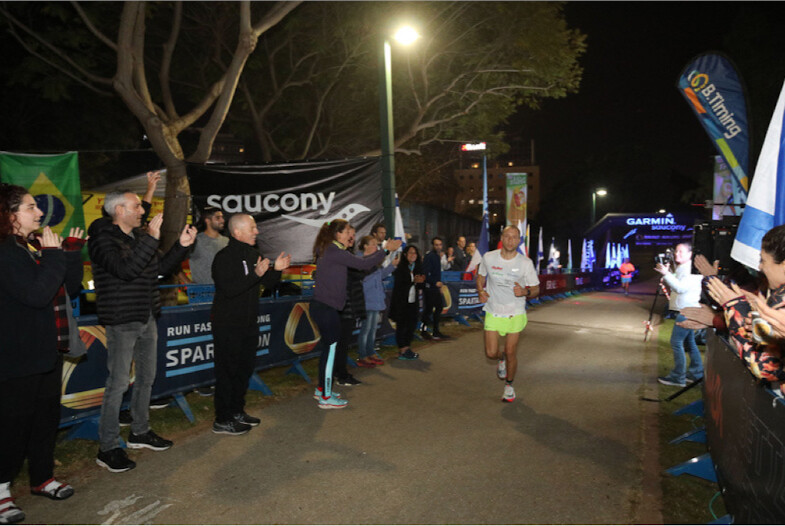
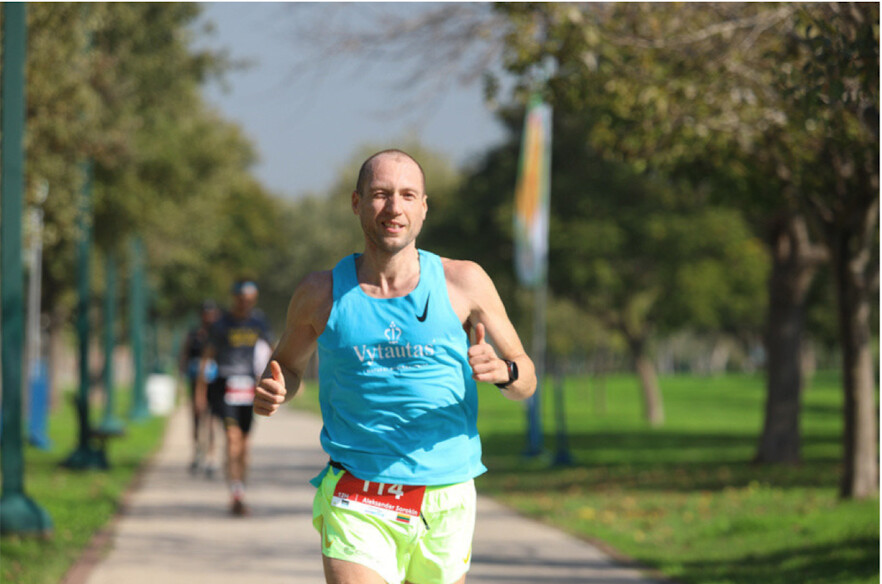
He broke his previous 100-mile world record by 23 minutes and his 12-hour record by seven kilometres. We spoke with Sorokin after he set his world records to get a grasp of his training and what’s next for the Michael Jordan of ultrarunning. So how does he train for speed above 50 miles?
“I am just following my running plan,” Sorokin says. “My coach, Sebastian Białobrzeski, has shown me the importance of the long run. We will often do 40-50km runs during training to build up my pain tolerance.” Sorokin’s base mileage sits around 200 kilometres per week, with his peak training weeks hitting 300 kilometres.
“After that, you just need to trust your training and pray everything else will be OK,” says Sorokin.
In the lead-up to his Spartanion race, Sorokin spent several weeks at altitude in Kenya’s renowned Rift Valley, which stands at 2,500m above sea level.
Sorokin fuels his body with junk food during his races. (i.e., chips, chocolate, candy and pop). He does this to keep his sodium and energy levels high during ultra races.
When we previously interviewed Sorokin, he mentioned that his decision to go after the 24-hour world record came after the 24-hour European Championships were cancelled in 2021. In 2022, the championships are back on and scheduled to take place in Verona, Italy in September. Sorokin has his eyes on the prize: “My main goal for the past two years has been winning the European 24-hour Championships,” Sorokin says. “I do want to do races in North America, but in the pandemic, it’s hard to make concrete plans.”
Sorokin also mentioned that he wanted to try some shorter distances in cooler climates over the next couple of months, but when we asked if he would be tackling any five or 10K races, he laughed, “I don’t run anything less than 10K.”
We may not be seeing Sorokin in a 5,000m race on the track anytime soon, but the 40-year-old ultrarunner carries an impressive 5K personal best of 15:45, which he ran last year in his hometown of Vilnius, Lithuania.
by Running Magazine
Login to leave a comment
Aleksandr Sorokin sets two world records at 12-hour race in Israel, becoming the first human to break the 11-hour barrier for 100 miles
The greatest distance runner in Lithuanian history, Aleksandr Sorokin, has done it again, smashing two of his world records at the Spartanion 12-hour race in Israel. Sorokin completed 122 laps of a 1.46-kilometer loop to equal 177 kilometers of running in 12 hours – an average of 4:03/km.
To put his performance in perspective, his time is equivalent to running 35 straight 5Ks in 20 minutes and 15 seconds each. When Sorokin started the race, his goal was to break the 12-hour record. It wasn’t until after halfway that he realized he was on pace to shatter his previous 100-mile record of 11:14.56.
He broke his previous personal best by 23 minutes, running 10:51:39, a whopping eight-second improvement per kilometer.

Sorokin is the first human to break the 11-hour barrier. There are no words to describe this performance besides remarkable. Even the 11:30 barrier has been untouched by many ultrarunners.
Sorokin raced again in the Nike Alphaflys. “A friend of mine gave me pair of Alphafly’s to try in August. I liked the softness of the shoe. Then I took the risk of wearing it during the race,” he says. “I find that cushioning is important for recovery when running long distances.”

Sorokin told us in a previous interview that he dreams of continuing his running career and pushing boundaries further. “I hope to compete at the world 24-hour championships this year and run a race in the U.S,” he says.
by Marley Dickinson
Login to leave a comment
American ultrarunner Taggart VanEtten smashes 100-mile treadmill world record with 11:32:05 run
American ultrarunner Taggart VanEtten crushed the 100-mile (160K) treadmill world record on Saturday, running a mind-boggling 11:32:05 at an event in Morton, Ill. VanEtten’s run lowered the previous world record significantly, shaving 37 whole minutes off the 12:09:15 result that Zach Bitter set last May. His result works out to an incredible average pace of 4:18 per kilometer.
It has been a tough couple of weeks for Bitter’s resume, as he has had his name erased from three ultrarunning world records in that time. First, Lithuania’s Aleksandr Sorokin beat Bitter’s 100-mile and 12-hour world records at an event in the U.K., lowering the two results to 11:14:56 and 170.309K, and now VanEtten has beaten Bitter’s 100-mile treadmill best.
When Bitter set the 100-mile treadmill world record last year (beating Canadian Dave Proctor‘s record of 12:32:26), it was hard to imagine anyone running faster. He averaged 4:32 per kilometre over the course of 12 hours, and it seemed unlikely that someone else would come even close to that (or want to spend that long on a treadmill) for a while. Just under one year later, though, VanEtten decided to give the record a shot, and he produced an even more amazing result.

VanEtten announced his plans to run the treadmill 100-miler in January, writing about the record attempt on Instagram. “For years now I have been anti-treadmill,” he wrote. “However, for the sake of longevity in my running career I must utilize one for regular use.” At the time, he said he hoped to run under 12 hours — a goal that he ultimately shattered.
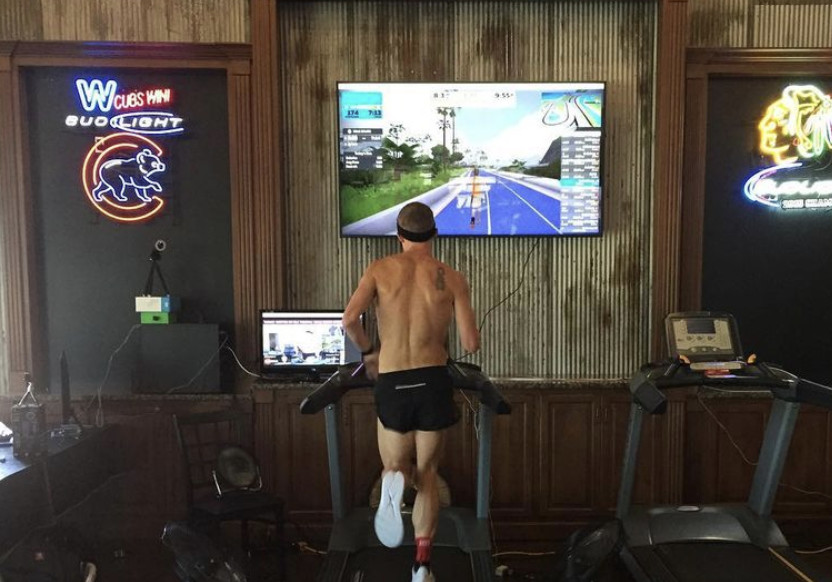
Running on a treadmill in a pub in Morton and keeping track of his progress on Zwift, VanEtten ran an impressively steady pace throughout. For the most part, he hovered between 4:10 and 4:20 per kilometre, and he never ran a kilometre slower than 4:58.
At 116K into the run, he posted one of his slowest kilometres of the day at 4:36, but he immediately made up for it by running 10K at sub-4:10 pace, including three sub-four-minute kilometres. His slowest kilometre of the day came at the 139K mark, but he regained his composure and remained steady in the 4:20s for the rest of the run. For context, his average speed of 4:18 per kilometre works out to a 43-minute 10K. Many people would be happy to run one 10K this quickly, but VanEtten ran 16 in a row at this pace.
To make the feat even more impressive, this record attempt was only VanEtten’s second official ultramarathon event. His first came in November 2020, when he won the Tunnel Hill 100-miler in Illinois. Despite the fact that it was his first ultramarathon ever, VanEtten not only won the race, but he posted the second-fastest result in the event’s history. His 12:19:55 finish was only 11 minutes slower than none other than Bitter, who owns the Tunnel Hill 100 record of 12:08:36.
VanEtten’s still a rookie when it comes to ultrarunning, but based on his two results so far in the sport, it’s safe to say his name is one that fans will get used to hearing in the coming years.
by Ben Snider-McGrath
Login to leave a comment
Lithuanian ultrarunner Aleksandr Sorokin breaks 100-mile, 12-hour world records at U.K. race
Lithuanian ultrarunner Aleksandr Sorokin broke the 100-mile and 12-hour world records at an event in Ashford, U.K., on Saturday, setting marks of 11:14:56 and 170.309K in the two categories. These results beat American Zach Bitter‘s world records, both of which he ran at the Six Days in the Dome event in Wisconsin in 2019. According to Centurion Running, the company that organized the elite-only event, Sorokin also broke the 150K world record (10:27:48) and the Lithuanian 50-mile best (5:32:01) on his way to the 12-hour finish.
Sorokin is no stranger to big results, and his resume includes top finishes at the 2019 IAU 24-Hour World Championships, which he won with a total of 278K in 24 hours, and the 2017 Spartathlon ultra in Greece, where he completed the 246K course in a little over 22 hours. His list of accomplishments just got even more impressive, though, with his records from Saturday’s run.
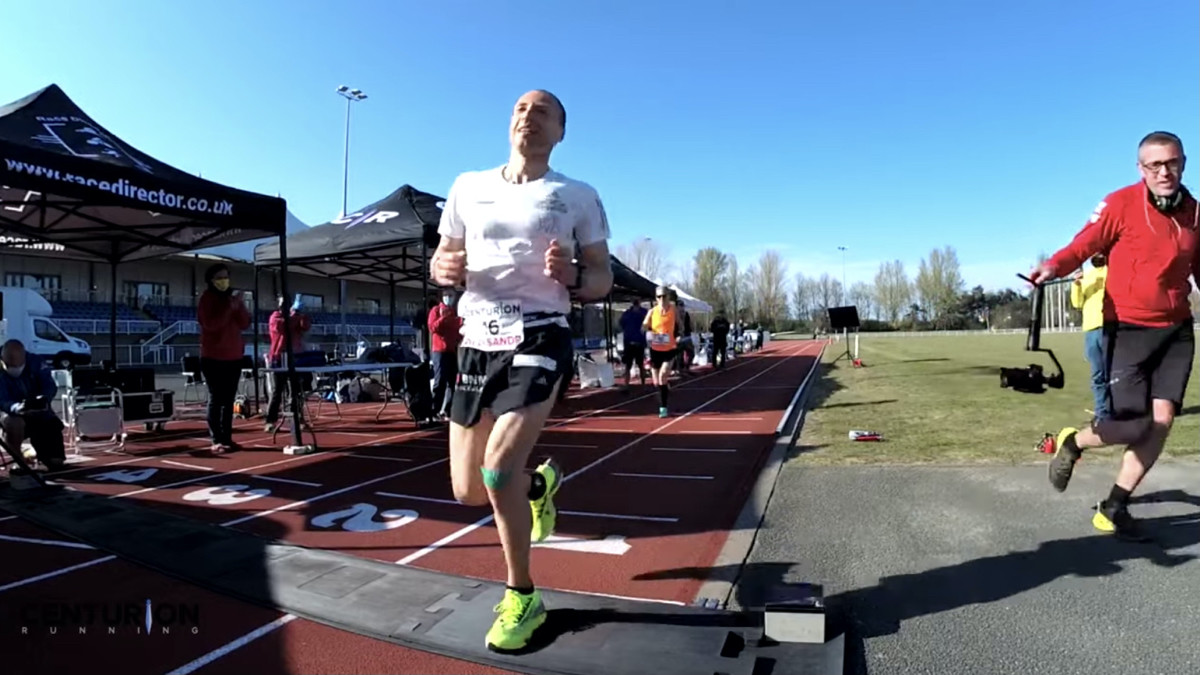
The event, which was dubbed the Centurion Track 100, featured a lineup of just 15 elite runners, each of whom was personally invited to compete. Entrants ran on a regular 400m track, and despite the race’s monotony and repetitiveness, Sorokin thrived, powering through each lap for 12 straight hours. He ran an incredibly even race the whole way, averaging 4:07 per-kilometer pace through 50K (he posted a 3:25:38 split), 4:08 pace after 50 miles (5:32:01) and the same at the 100K checkpoint (6:54:25).
After 100 miles (another 60K of running after he hit the 100K mark in the race), Sorokin faded only slightly, and his overall pace for the record run to that point was 4:12 per kilometre. His 170K in 12 hours works out to 4:14 per-kilometre pace. For context, that’s like running 16 straight 10Ks and finishing each one in about 42 minutes. Sorokin’s results bettered Bitter’s 100-mile record of 11:19:13 and 12-hour record of 168K from 2019.
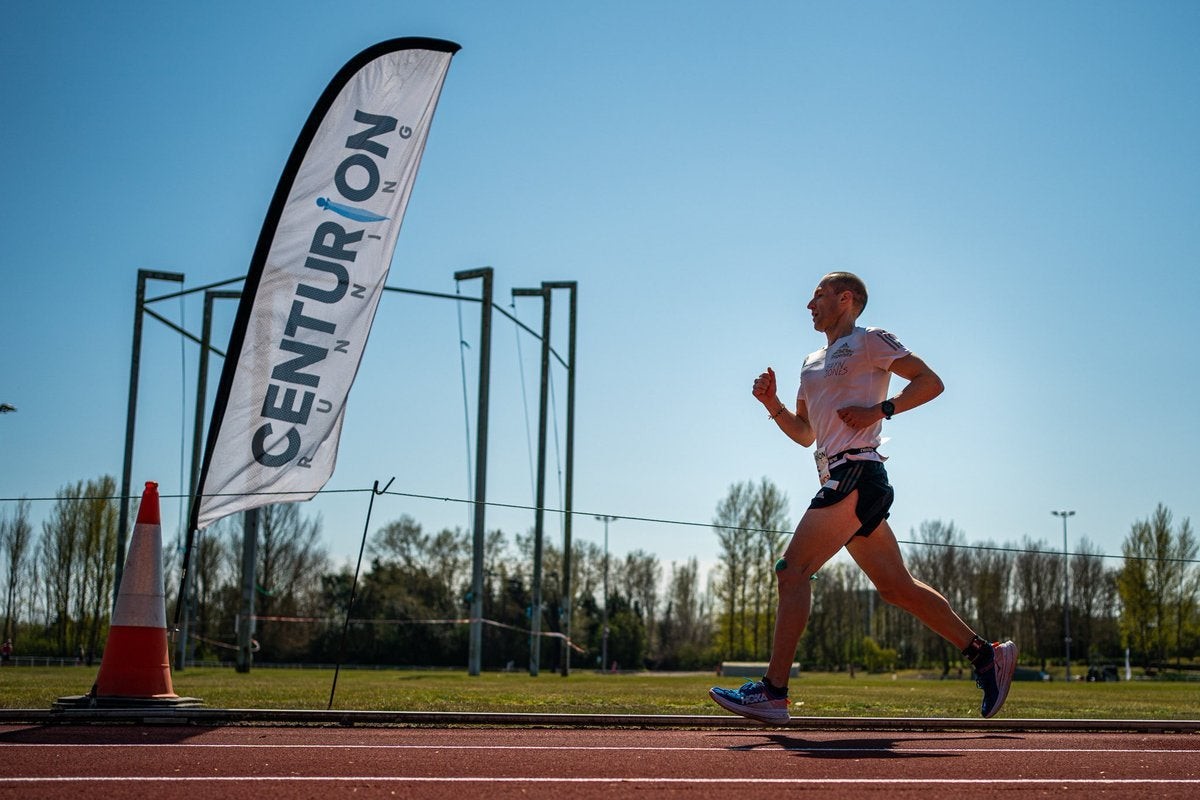
While Sorokin was chasing down his world bests, Britain’s Samantha Amend was busy working on records of her own. At the six-hour mark, Amend set the W40 British record of 72.995K, and she passed through 100 miles in 14:34:05, breaking the open national record for the distance. Several other athletes set national age group records over the various distances as well on Saturday.
All records set in Ashford are still unofficial, but the Centurion Running website notes that the course was certified by UK Athletics, so the times should all be ratified soon.
by Ben Snider-McGrath
Login to leave a comment
World and British records fall at Centurion 100-miler
Aleksandr Sorokin sets world marks while Samantha Amend breaks national best at ultra-running track event at Ashford in Kent
Aleksandr Sorokin set a world record for 100 miles with 11:14:56 at the Centurion Running Track 100 in Ashford on Saturday (April 24) and then carried on to break another global mark for the furthest distance covered in 12 hours with 105.825 miles (170.3km).

At the same event, Samantha Amend broke Eleanor Robinson’s long-standing UK record for 100 miles with 14:34:05.
Sorokin’s performances beat the previous records of 11:19:18 for 100 miles and 104.88 miles for 12 hours set by Zach Bitter in 2019 in Wisconsin.

The Lithuanian, who won the IAU world 24-hour title in 2019 and who outside athletics works as a croupier in a casino, averaged 6:45 per mile (sub-3hr pace) for his 100-mile effort. This was despite having to finish his final preparations on a treadmill due to being quarantined in the UK on the eve of the race.
He celebrated by striking a Usain Bolt-esque lightning pose on the track and then watched Amend break a national record.
Robinson ran 14:43:40 at Milton Keynes in 1990 but Amend broke that mark by almost nine minutes as she finished under floodlights at the Julie Rose Stadium.
Amend, who works for an IT company and races for Belgrave Harriers, has clearly been building into good form after winning the Dorney Marathon in 2:52:36 at the start of April.
by Athletics Weekly
Login to leave a comment
Camille Herron sets new world record for women for the most miles run in 24 hours in Albi France
With her performance in Albi, France, on Sunday, ultrarunner Camille Herron came back strong after a hamstring injury forced her to drop out.
She achieved a world best for the most distance covered in 24 hours on her way to winning the International Association of Ultrarunners 24-Hour World Championship.

Herron, 37, completed the challenge by running 270.116K (167.842 miles) in a span of 24 hours on a series of 1500-meter loops in and around the Terrain Honneur Stadium. This is an average of 8:37 per mile. Pending ratification, the ultrarunner’s performance is the record for the most distance covered in a day for women.
Less than a year ago, Herron broke the world record for the 24-hour run on the track, which made her the favorite heading into Sunday’s race. She established herself up front early on, taking the lead in the first lap and maintaining her top position for the entire race.
Around the halfway point, she almost caught men’s race leader Aleksandr Sorokin of Lithuania, according to the International Association of Ultrarunners (IAU).
by Runner’s World
Login to leave a comment


